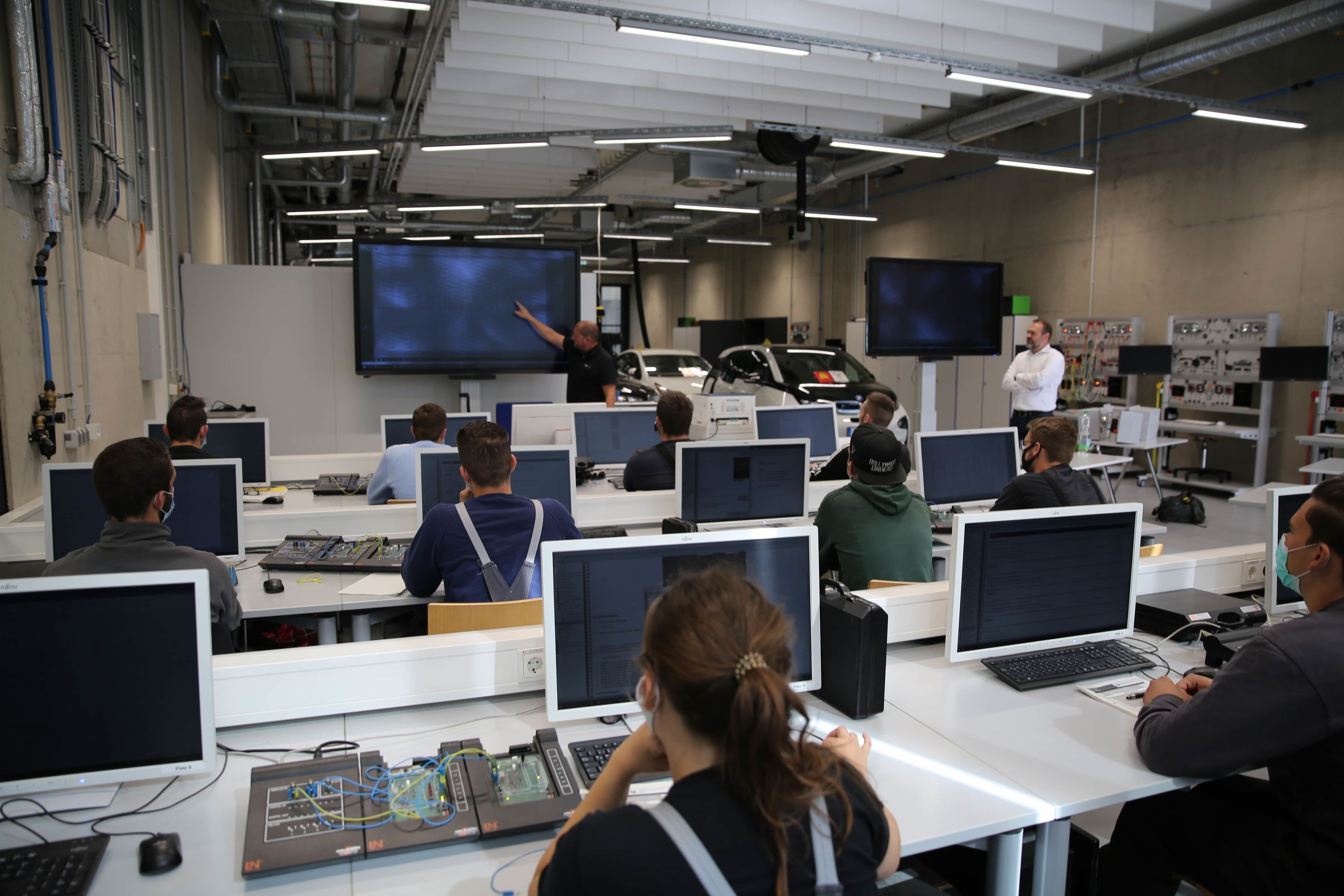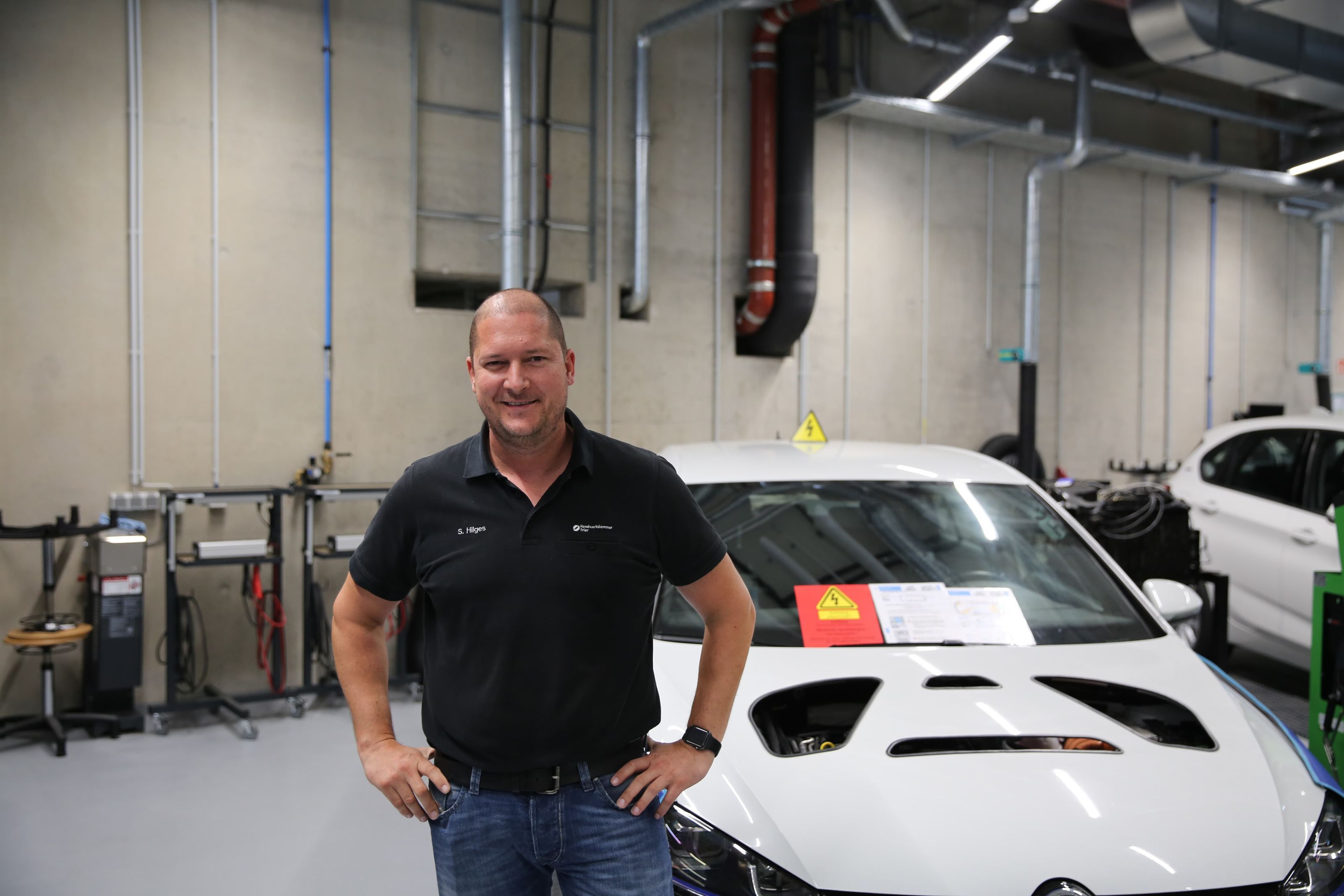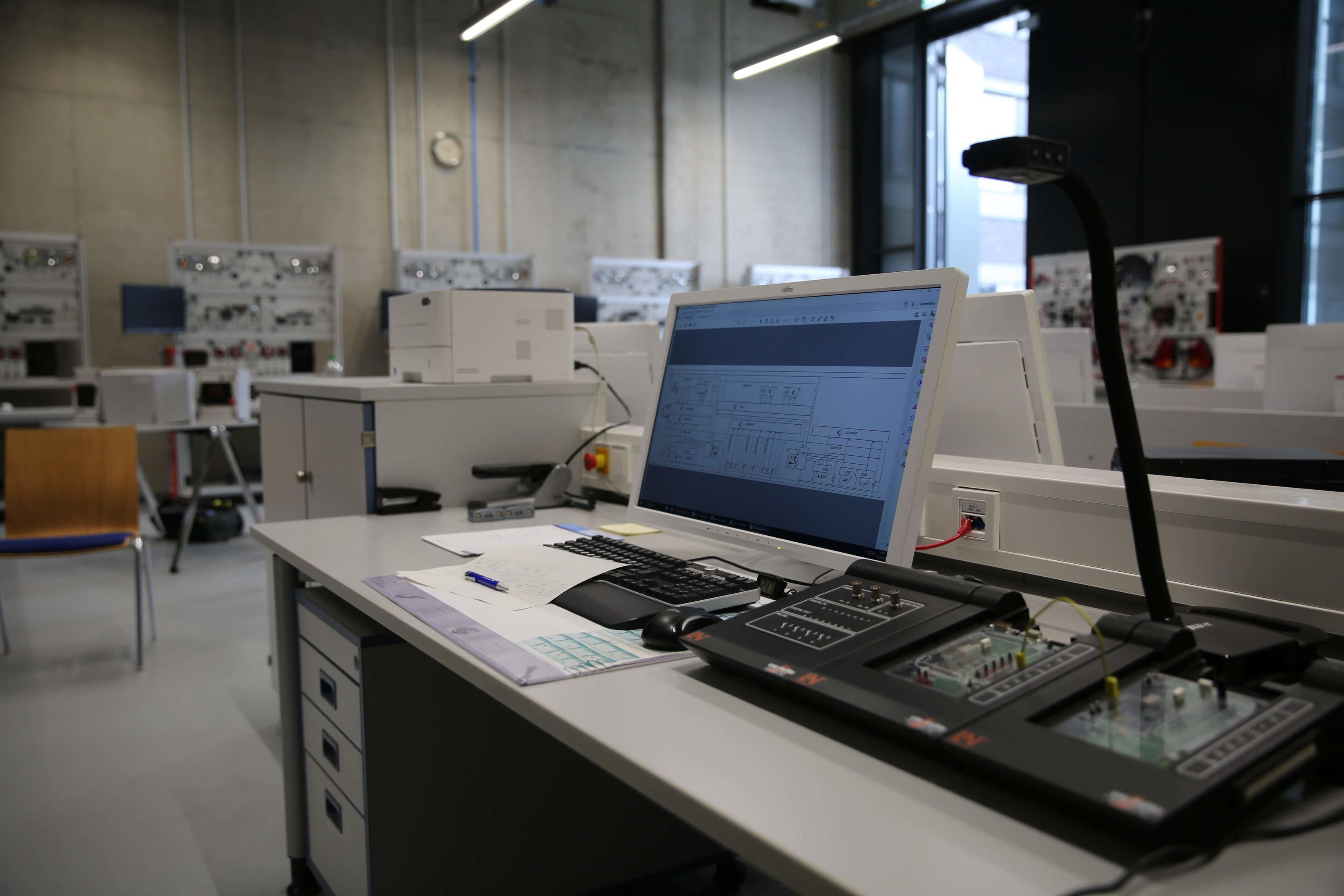A digital upheaval with a strong focus on practical training
A lack of options is not really the problem for inter-company automotive training courses provided by the HWK Trier (Chamber of Skilled Crafts) in Germany.The brand-new training and technology centre, called BTZ, provides master training instructors excellent conditions for successful digitalization. The equipment in the automotive training workshop is also state-of-the-art.
New digital opportunities
Sebastian Hilges is standing in front of a large TV screen and discussing the measurement results of one trainee with the course participants – digitally networked and also fully Covid-compliant is the way the courses at the vocational training and technology centre BTZ are run by the HWK Trier. Hilges has been a master training instructor for automotive technology here since 2018. In that short time a lot has changed, and that is because starting last year the training centre relocated into a brand-new modern building.In addition to that, the Chamber also invested in training equipment for the automotive training workshop choosing training systems from Lucas-Nülle for their success. “Hands-on practice was the decisive criterion for the planning of our new equipment”, explains Hilges. In addition to basic UniTrain courses, the instructors also have eight digitally networked training vehicles at their disposal for the study courses. That is why all training participants can work with the systems simultaneously. Arriving on the scene last was the digitally networked, latest generation of the modular CAN Bus training wall panels.
Thanks to this combination of digitalized training systems and a modern building infrastructure, the potential teaching power for Hilges and his associates has vastly improved. For example, the trainees can now use the engine tester from their PC workstation to be able to obtain real-time measurement values from the training vehicle in the next room. The preliminary work is carried out by the master training instructor together with the whole group using two widescreen TV displays. He also likes using split-screen to observe the live action taking place in the practical experiment in the next room. Everyone can monitor this individually and in detail at their own PC workstation.

From the desks, the trainees can access the measurement values of the training vehicles in the next room.
A step forward also in terms of method
“Of course, the digital transformation which we have undertaken in training and education also includes our methodology.” Highlights Sebastian Hilges adding: “We have also put a huge emphasis on this subject too with a focus on hands-on practice and skills.” In order to go from talk to action, he and his colleagues decided to use the basic educational and training concept of the Lucas-Nülle systems for a host of topics. Accordingly, trainees are now learning, for example, the fundamentals of communication via CAN-Bus by doing practical experiments with the corresponding UniTrain course. After two days, their training proceeds on the seminar wall panels where they implement the control of the Xenon headlamps via Can-bus or via Lin-bus. At the end of the training week they then switch over to the digitally networked training vehicle, where they complete the transition from basics to actual hands-on applications of networked systems on a real car.
“The transparency of the systems, for example, between the high-volt trainer and the lighting systems training panel walls, was the argument in favour of Lucas-Nülle”, says Hilges in confirmation and adds: “Naturally, for us instructors the introduction of these systems took time to adjust to initially.” Previously he and his colleagues had to think up fault simulations and then integrate them into the training themselves. “Now it is me that has to become familiar prior to the courses with all the diagnostic options made available by the systems”, reports the master trainer and adds with a grin: “But if too many options is my reason for complaining, then I probably really can’t complain.”
Asked about the impact of Covid’s restrictions on the training, the master trainer shows himself to be a pragmatist and says: “Actually Covid-19 only forced us to implement our existing concepts even faster. You could even say it played into our hands.” And that the concepts were a success can be shown by the real-life results: apart from the initial lockdown phase the courses in automotive technology at the training and technology centre of HWK Trier continued almost without interruption.

